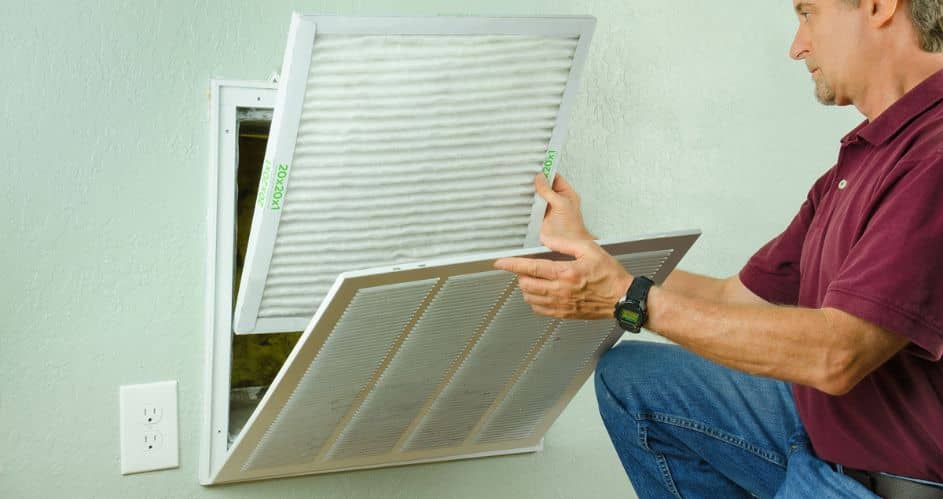
A critical step in achieving clean and healthy indoor air for our well-being often revolves around choosing the right air filter and maintaining it properly. Installing air filters is nothing to worry about, as HVAC professionals will handle it.
However, even with their assistance and guidance, it is ultimately up to you to pick the proper air filter for your needs. With a wide range of options available, determining which air filter is best for your home can be challenging, as several factors must be considered.
This includes air quality concerns, filtration needs, system compatibility, and budget. Let’s explore some essential steps in choosing the proper air filter for your home so you can identify the best air filter for your needs.
Understanding Air Quality Concerns
Each home or property owner has different air quality concerns that they wish to address, and factors such as the presence of pets, living in certain environments, chemical sensitivities, allergies, or respiratory issues such as asthma will play a vital role in your air filter choice.
Because of this, the first thing that you need to do is to assess and identify your air quality concerns correctly. A
n HVAC professional can also help you with this, but as a general rule of thumb, if you or family members suffer from respiratory conditions or allergies, then opting for filters that have higher efficiency in capturing smaller particles like pollen, mold spores, or pet dander, is preferable.
Suppose you live in an area with higher pollution levels or have specific chemical sensitivities. In that case, you should consider air filters that have the capability to address those concerns.
Once you understand and write down your air quality concerns, you will more easily prioritize the filtration capabilities you want and need in an air filter and narrow your search.
Determine System Compatibility
Before you begin your air filter search, you should narrow your list further by determining the specifications of your HVAC system. You can consult your system’s manual or contact the manufacturer to understand the recommended or maximum filter rating it can accommodate.
Some systems may have limitations on the type of filter thickness they can handle. You have to make sure that the filter you choose is compatible with your HVAC system to avoid airflow restrictions or potential damage.
Additionally, consider the physical dimensions of the filter to ensure it fits properly within the filter housing.
Evaluate Filter Efficiency
Air filters are assigned a MERV (Minimum Efficiency Reporting Value) rating, which indicates their filtration efficiency when it comes to small and large particles. MERV ratings can range from 1 to 20. The higher numbers indicate better filtration.
Consider your filtration needs and system compatibility based on the air quality concerns identified earlier. In general, households use filters that have a MERV rating of a minimum of 8. Some have 11 and 13, which are often considered sufficient for most needs.
These filters can effectively capture common allergens and larger particles while maintaining adequate airflow. In special instances, if you require higher filtration, such as for severe allergies or other specific health conditions, you can consider filters with higher MERV ratings or specialized filters, such as HEPA filters.
Yet, it’s important to remember that higher-rated filters restrict airflow more than lower-rated filters. Essentially, the most beneficial thing to consider is balancing filtration efficiency and airflow for optimal HVAC system performance.
With the right air filter, you won’t just enhance indoor air quality and comfort but also protect your HVAC system components as these filters also keep out dust and debris from them.
Consider Filter Types
In the air filter world, various models come with their own advantages and particular considerations. Among the most common types of air filters on the market include:
- Fiberglass air filters
- Pleated air filters
- Washable air filters
- Electrostatic air filters
- Activated carbon filters
- HEPA filters & UV filters
All of these filters have different costs, filtration effectiveness and unique features, and maintenance requirements. For example, fiberglass filters are among the most affordable ones out there, but they only offer basic filtration and require frequent replacement.
Pleated filters come with all sorts of MERV ratings. They are more efficient and have longer lifespans than fiberglass filters, but they are pricier. Washable filters are reusable, which is highly attractive for some homeowners, but the washing process must be thorough, and these filters must be appropriately dried before reuse.
They also have lower filtration efficiency than other filters.
When it comes to electrostatic filters, they are great for capturing allergens as they act like a magnet, using an electrostatic charge. However, they might not be good against other types of particles.
On the other hand, activated carbon filters are great at getting rid of odors and removing chemicals from the air but may have limited effectiveness in capturing larger particles.
The most crucial aspect is to reach a trade-off between filter types by analyzing cost, maintenance requirements, and filtration effectiveness to determine the best fit for your home.
Set a Budget and Maintenance Plan
Finally, consider your budget when selecting an air filter. Higher-rated filters or specialized filters like HEPA may have higher upfront costs, but they offer long-term benefits regarding improved air quality and reduced health risks.
Factor the ongoing maintenance requirement costs in your budget and set one that allows you to regularly replace or clean your filters for optimal performance and filtration efficiency.